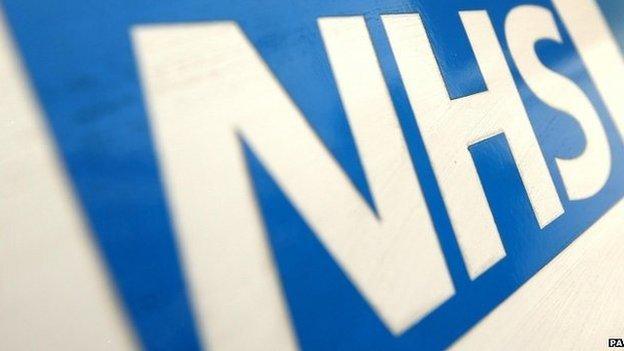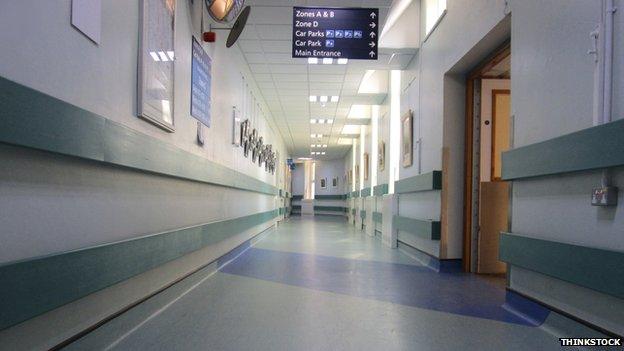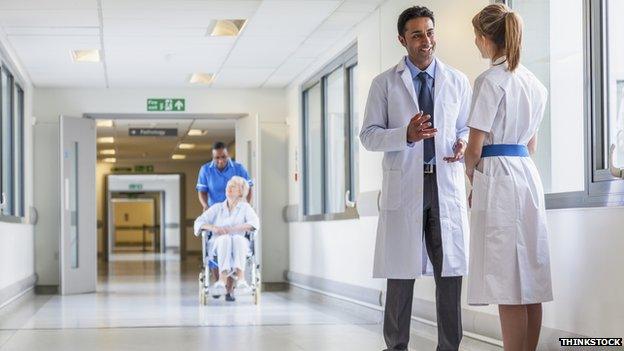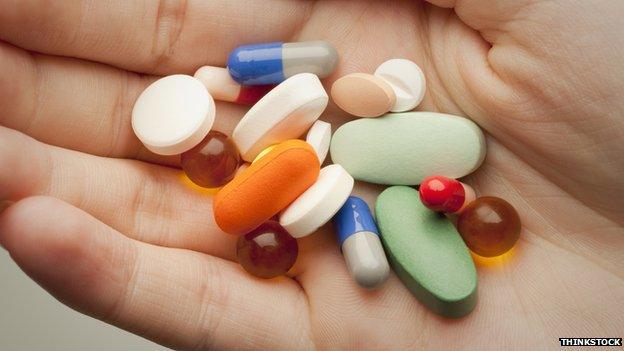Daily question: What might independence mean for Scotland's NHS?
- Published
As the people of Scotland weigh up how to vote in the independence referendum, they are asking questions on a range of topics, from the economy to welfare.
In this series, we are looking at those major questions and by using statistics, analysis and expert views shining a light on some of the possible answers.
Here we look at how independence could affect the NHS in Scotland.
Campaigners for independence say a "Yes" vote will not affect the day-to-day running of the NHS, but will provide new opportunities to tackle health inequalities.
Those arguing to keep Scotland in the Union argue the health service is better secured for the future as part of the UK.
Do you have a referendum question? Let us know by....
Emailing newsonlinescotland@bbc.co.uk.
We can also be found on Twitter @bbcscotlandnews, external
And on Facebook, external.
Deirdre Henderson from our People's Panel asked: "In the event of a No vote can the Better Together guarantee that the 70% privatisation of the NHS south of the border will not impact the NHS in Scotland?"

Would independence be good for Scotland's NHS?

Earlier this year First Minister Alex Salmond warned of a "growing threat" to the Scottish NHS from an agenda of "privatisation and fragmentation" at Westminster.
"Under the Westminster system, cuts to spending in England automatically trigger cuts in Scotland," he said. "So if private money replaces public funding in England, our budget will also be slashed no matter what we want or need."
He was referring to the way Scotland gets its money - a formula which was devised in the 1970s as a temporary fix, but which is still in use today.
Alex Salmond is right in so far as how this formula works. It was designed to make sure Scotland, Wales and Northern Ireland got the same proportion of money as England for public spending (although, for a variety of reasons, Scotland has long benefited from a larger share of the pot).
If England spends less, Scotland gets less too. However, beyond this, Mr Salmond's statement is open to question.

Will reforms to the NHS in England mean less money for Scotland?

Only if England actually spends less on the NHS - and that's a big 'if'.
While England has been making radical changes to the NHS, there is no guarantee this will make it cheaper.
Spending on health in England has been in effect frozen since 2009 (arguably because of the recession) but reforms to the NHS in England haven't reduced total spending.
Both the UK Treasury and the Office for Budget Responsibility, external expect spending on healthcare to increase for the foreseeable future.
Mr Salmond's statement also implies that anything spent on private healthcare doesn't come from the budget of the NHS, when this is not necessarily the case.
England is simply using NHS funds to buy healthcare from private companies as well as NHS organisations.
A cataract operation has to be paid for by the government, whether it is done by an NHS hospital or a mobile treatment unit. Therefore, the amount Scotland gets from the Treasury is not affected.
The only way this would change is if the general public in England were encouraged - or forced - to take out private health insurance to cover their health needs, rather than rely on a state system.
It is hard to see a proposal of that kind on the horizon, and, even if there was, state spending on health might still be significant.

Would higher spending mean a better health service?

Whilst it's estimated the NHS needs to increase spending by 3-5% per year just to stand still, dramatically higher spending does not always guarantee a better service.
In 2010 the Organisation for Economic Co-operation and Development (OECD) analysed the health systems of developed countries and found countries which spend the most are not necessarily the ones that fare best in terms of health outcomes.
It said that life expectancy could be raised by more than two years if all countries became as efficient as the best performers.
It also found that, external, without reform, a 10% increase in healthcare spending would increase life expectancy by only three-to-four months.

So what is the best medicine for the NHS?

The pressure of an ageing population combined with the spiralling cost of the most effective treatments is a huge challenge for the NHS.
In a recent speech, the outgoing chairman of the British Medical Association in Scotland said the current service provided by the NHS is "just not sustainable."
Dr Brian Keighley called for an honest discussion about what the NHS should and shouldn't provide, regardless of the outcome of the vote on independence.
That is an issue which isn't addressed in the campaign material of either side - and exactly the issue that politicians of all persuasions have always preferred to dodge.